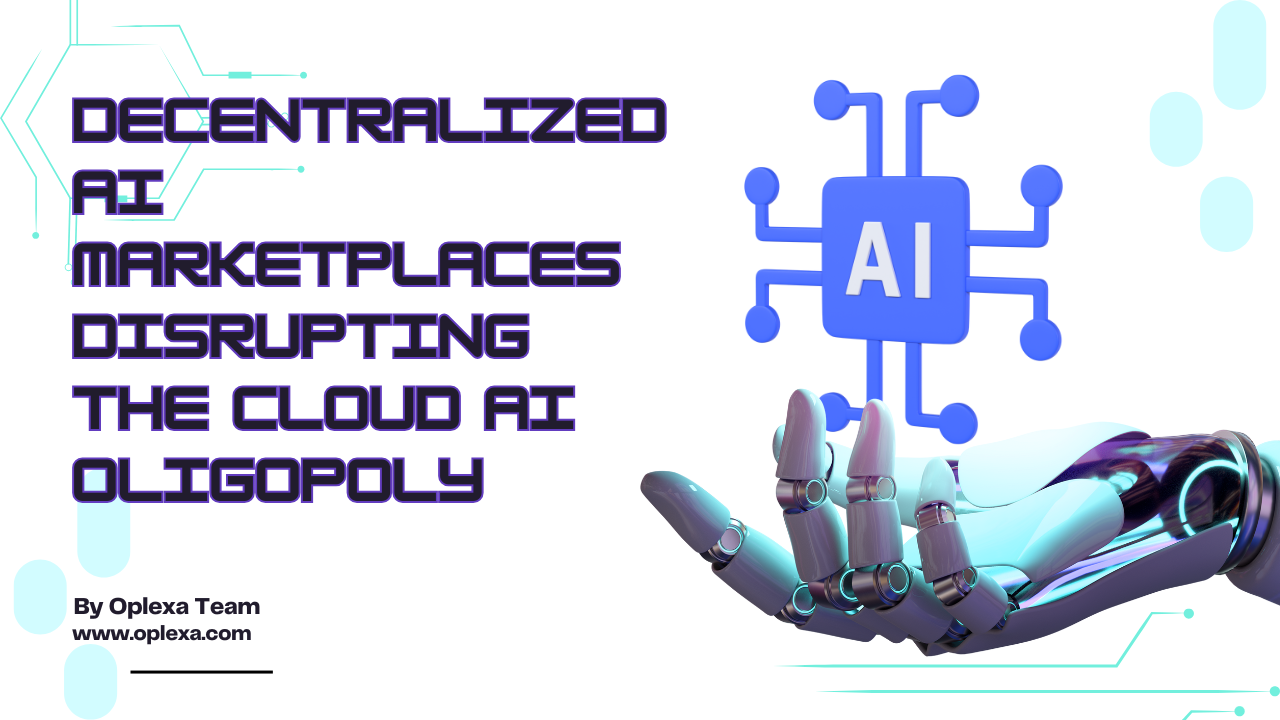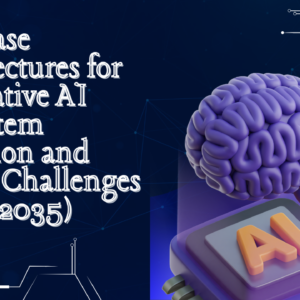1. Executive Summary
-
- Overview of decentralized AI marketplaces and their disruptive potential
- The current dominance of cloud providers in AI compute and access
- How decentralized models aim to democratize AI services
2. The Rise of Decentralized AI Marketplaces
-
- Introduction to decentralized AI: What it is and how it works
- Key players in the space: Ocean Protocol, SingularityNET, Fetch.ai, and other emerging platforms
- The role of blockchain technology in enabling decentralized AI services
3. Cloud AI Oligopoly: The Current Landscape
-
- Overview of the cloud AI dominance by major players: AWS, Microsoft Azure, Google Cloud, Alibaba Cloud
- The economics of cloud AI: Control over compute resources, pricing power, and service delivery
- Why traditional AI services remain centralized: Benefits and limitations of cloud-based AI
4. Decentralization vs. Centralization: The Democratization of AI
-
- Advantages of decentralized AI marketplaces: Cost, accessibility, and scalability
- Challenges facing decentralized AI models: Security, trust, data privacy, and latency issues
- Decentralized AI marketplaces as a counterbalance to centralized cloud services
5. How Decentralized AI Marketplaces Work
-
- Peer-to-peer AI models: How AI workloads are distributed across decentralized networks
- Token-based incentive structures: Facilitating AI access, payments, and rewards
- Case studies: How decentralized AI marketplaces operate in practice
6. Key Use Cases: AI Services via Decentralized Marketplaces
-
- AI model training and compute services via decentralized networks
- AI for healthcare, finance, and supply chain: Real-world applications
- How decentralized marketplaces support independent AI developers and startups
7. Regulatory Landscape: Navigating Decentralized AI Compliance
-
- Regulatory challenges in decentralized AI: Data privacy, AI ethics, and legal frameworks
- How decentralized platforms are addressing compliance in the absence of central authorities
- The role of decentralized AI in maintaining transparency and data security
8. Challenges and Risks in Decentralized AI Marketplaces
-
- Technical barriers: Infrastructure, scalability, and processing speeds
- Trust and transparency: Ensuring quality and reliability of AI models in a decentralized environment
- The impact of network effects on marketplace success
9. Competitive Dynamics: Decentralized AI vs. Cloud AI
-
- Comparing decentralized AI platforms to traditional cloud providers
- Strategic advantages of decentralized AI in cost-efficiency and resource-sharing
- How the oligopoly of cloud providers is responding to the decentralized AI threat
10. Investment Landscape and Opportunities
-
- VC investment trends in decentralized AI startups
- Key growth opportunities in AI marketplaces: Decentralized compute, data exchange, and tokenized AI services
- The potential long-term market size for decentralized AI
11. Market Forecast: Decentralized AI from 2025 to 2035
-
- Adoption outlook for decentralized AI marketplaces across industries
- Projected impact on cloud AI service providers and pricing models
- Potential for decentralized AI to reshape the global AI economy
12. Conclusion and Strategic Recommendations
-
- Summary of findings on the potential disruption caused by decentralized AI marketplaces
- Strategic advice for investors, AI developers, and cloud service providers
- Future considerations: Scalability, security, and mass adoption of decentralized AI
#DecentralizedAI #AIMarketplaces #AIRevolution #BlockchainAI #CloudAI #AICompute #AIInfrastructure #AIStartups #AIvsCloud #TechDisruption #AIBlockchain #DecentralizedComputing #AIInvestment #AIInnovation





